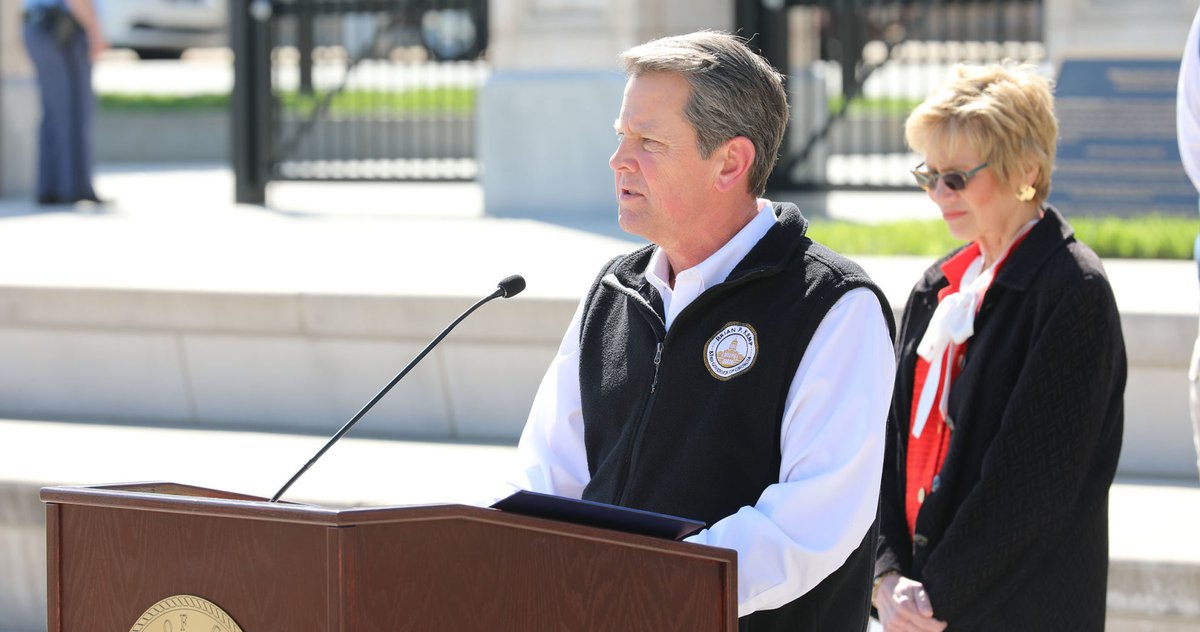ATLANTA — Gov. Brian Kemp late Tuesday lifted restrictions on elderly long-term care facilities that have been in effect in Georgia since the coronavirus pandemic hit the state in March.
Effective at 5:30 p.m. Tuesday, Sept. 15, nursing homes, personal-care homes, assisted-living communities, hospices and other elderly-care facilities were allowed to reopen subject to continuing measures aimed at reducing the spread of COVID-19.
“The state has collaborated with appropriate agencies, long-term care associations and other stakeholders on how to responsibly ease restrictions in long-term care facilities while COVID-19 remains in communities across the state,” Kemp wrote in an executive order.
Under Kemp’s order, elderly-care facilities will be allowed to reopen by progressing through three phases, the third phase being the least restrictive.
Decisions on which phase to implement at any given time must be based on considerations including the number of coronavirus cases in the local community or inside the facility, access to personal protective equipment (PPE), whether a facility’s staffing is adequate and hospital capacity in the local community.
The governor issued a statewide shelter-in-place order in March with the coronavirus pandemic taking hold across Georgia. He has since lifted the order as it applied to most residents and businesses but left it in place for elderly-care facilities, as they were being hit particularly hard by the virus.
The governor emphasized in his order that the number of COVID-19 cases in Georgia continues to grow and that the virus remains “a severe threat to public health.”
Under the Phase I restrictions, visitation to an elderly-care facility will not be allowed in most instances. Non-medically necessary trips should be avoided, while screening of residents and staff will be conducted three times daily under both phases 1 and 2.
Visitation will be allowed under phases 2 and 3, with outside visits preferred. Limited non-medically necessary trips also will be permitted under the second and third phases. Screening of residents and staff will only be required once a day under Phase 3.
The elderly-care facilities order will remain in effect until the conclusion of the public health state of emergency Kemp declared in Georgia back in mid-March.
Effective at 5:30 p.m. Tuesday, Sept. 15, nursing homes, personal-care homes, assisted-living communities, hospices and other elderly-care facilities were allowed to reopen subject to continuing measures aimed at reducing the spread of COVID-19.
“The state has collaborated with appropriate agencies, long-term care associations and other stakeholders on how to responsibly ease restrictions in long-term care facilities while COVID-19 remains in communities across the state,” Kemp wrote in an executive order.
Under Kemp’s order, elderly-care facilities will be allowed to reopen by progressing through three phases, the third phase being the least restrictive.
Decisions on which phase to implement at any given time must be based on considerations including the number of coronavirus cases in the local community or inside the facility, access to personal protective equipment (PPE), whether a facility’s staffing is adequate and hospital capacity in the local community.
The governor issued a statewide shelter-in-place order in March with the coronavirus pandemic taking hold across Georgia. He has since lifted the order as it applied to most residents and businesses but left it in place for elderly-care facilities, as they were being hit particularly hard by the virus.
The governor emphasized in his order that the number of COVID-19 cases in Georgia continues to grow and that the virus remains “a severe threat to public health.”
Under the Phase I restrictions, visitation to an elderly-care facility will not be allowed in most instances. Non-medically necessary trips should be avoided, while screening of residents and staff will be conducted three times daily under both phases 1 and 2.
Visitation will be allowed under phases 2 and 3, with outside visits preferred. Limited non-medically necessary trips also will be permitted under the second and third phases. Screening of residents and staff will only be required once a day under Phase 3.
The elderly-care facilities order will remain in effect until the conclusion of the public health state of emergency Kemp declared in Georgia back in mid-March.





